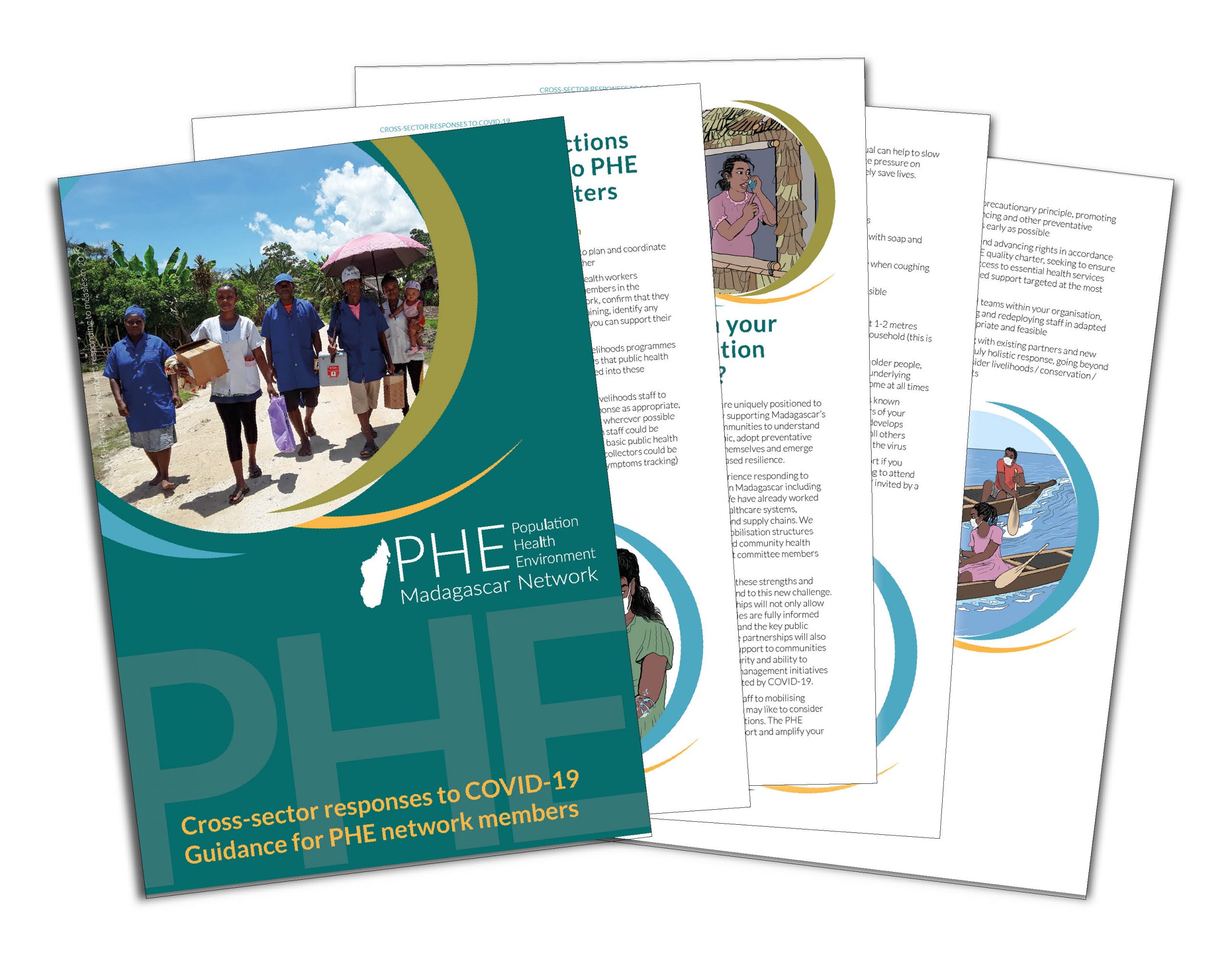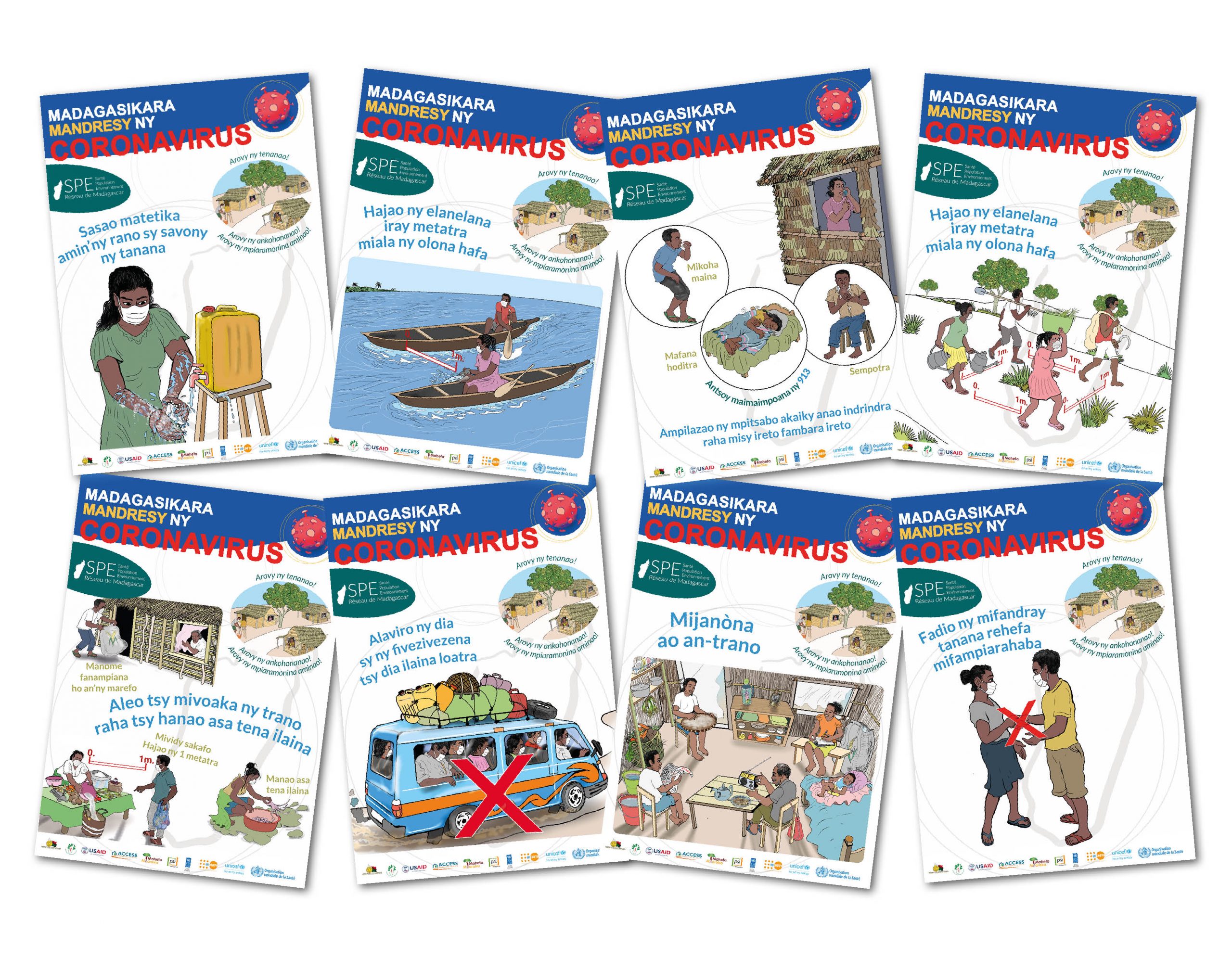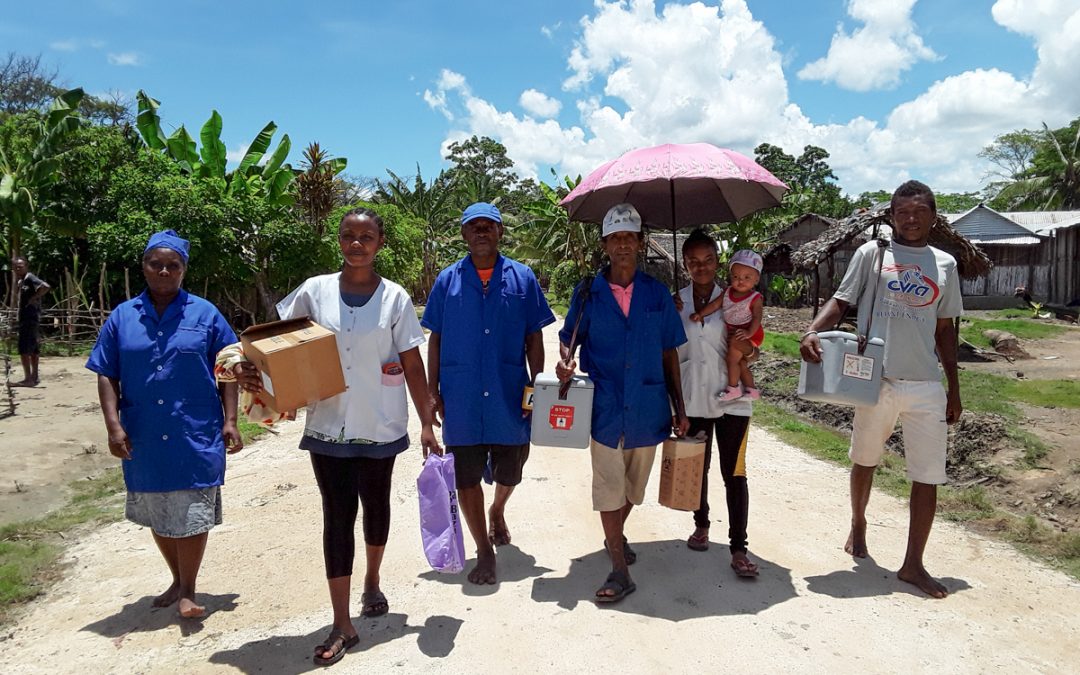Image: PHE network members responding to measles last year
As health and conservation organisations across Madagascar mobilise vulnerable rural communities to protect themselves and their livelihoods in the face of COVID-19, the PHE network launches a suite of resources and online support to advance agile, community-based, cross-sector responses to this unprecedented global pandemic.
Infectious disease outbreaks are not new for the Madagascar Population-Health-Environment (PHE) Network. Member organisations have mounted effective responses to measles and the plague in the past, but COVID-19 presents a deeper set of challenges. This virus threatens not only the health of communities, but also the markets and ecosystems upon which their livelihoods depend. Never has the need for a holistic approach been more clear.
PHE network members are uniquely positioned to respond by enabling communities to understand this fast-evolving pandemic, adopt preventative measures early, protect themselves and emerge from this crisis with increased resilience. From strengthening healthcare systems and supply chains to leveraging community mobilisation structures and encouraging environmentally sustainable adaptation strategies, every organisation has an important role to play.
To support these efforts, the PHE network is offering a preliminary technical guide to cross-sector responses to COVID-19 along with a set of illustrated posters that can be used for no-contact community outreach in low literacy settings. These tools are focused on advancing targeted local interventions that can contribute to the actions of the Malagasy government at the national level.
The resources are due to be launched through an interactive webinar with PHE network members, during which initial learning and experiences can also be shared. In line with the Malagasy government’s restrictions on gatherings, the PHE network is transitioning all of its meetings and workshops to online platforms, providing members with regular opportunities to connect in solidarity and exchange emerging best practices for responding to this pandemic.

The technical guide, intended for NGO members of the network, suggests a variety of community-based actions that can be taken according to the needs and capabilities of each organisation. Concise yet rich in content, the guide includes an overview of key information relating COVID-19 and the pandemic response strategies of the PHE network. Then it offers a selection of actions relevant to all organisations, followed by more in-depth actions and guiding principles for PHE implementers. Actions include cross-training staff to mobilise communities, supporting positive behaviour change and social norms around preventative practices, and strengthening local community structures while seeking to mitigate potential impacts on livelihoods and ecosystems. The guide concludes with an encouragement to NGO members to track all of their initiatives relating to COVID-19 so that the network can capture the value of a holistic PHE approach in responding to this pandemic and share best practices as they emerge.

The posters, already reviewed by the Ministry of Public Health and currently in pilot mode, will soon be available in several Malagasy dialects including Betsimisaraka, Vezo, Sakalava-Vezo, Sakalava-Antakarana, Betsileo and Tanala. They show what communities should do to protect themselves and others from this coronavirus, with more illustrations than text to optimise everyone’s understanding. The messages align with those already promoted by the World Health Organization in Madagascar, and complement existing government tools that have been designed for use in higher literacy urban settings.
Faced with this new challenge and now equipped with these resources, PHE network members will continue working together to support communities and conserve ecosystems throughout this pandemic. Marie Stopes Madagascar has permission to maintain its essential family planning services, with mobile provision of long-acting reversible contraception continuing at most PHE partnership sites. Meanwhile, community health workers and natural resource committee members are joining forces to mobilise their communities to prepare and respond. The PHE network team will be supporting and documenting these efforts in the coming weeks, with regular member webinars to support learning and collective action.

